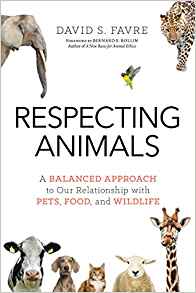Results
| Title | Citation | Alternate Citation | Summary | Type |
|---|---|---|---|---|
| Shively v. Dye Creek Cattle Co. | 35 Cal.Rptr.2d 238 (Cal.App.3.Dist.) | 29 Cal.App.4th 1620 (Cal.App.3.Dist.) |
This California case concerned a personal injury action arising from a collision between the plaintiff's car and defendant's black Angus bull, which was lying on the highway at night. The trial court granted the defendant's motion for summary judgment. In reversing this decision, the Court of Appeal held that the open range law does not itself define the duty owners of cattle owe nor does it exempt them from the duty of ordinary care. |
Case |
| Amburgey v. Sauder | 605 N.W.2d 84 (Mich. 1999) |
Plaintiff was bitten by a horse as she walked through a stable. The court determined that Plaintiff was a “participant” for the purposes of the Equine Activity Liability Act (EALA), and thus the Defendant stables owner was insulated from liability arising out of the unanticipated, abnormal behavior of the horse. |
Case | |
| Animal Legal Defense Fund v. Reynolds | 297 F.Supp.3d 901 (S.D. Iowa Feb. 27, 2018) | 2018 WL 1151000 (S.D. Iowa Feb. 27, 2018) | In 2012, Iowa passed a statute (Iowa code § 717A.3A) that criminalized gaining access to agricultural facilities under false pretenses and making a false representation on a job application for those facilities. Plaintiffs in this case (animal rights groups including the Animal Legal Defense Fund and PETA) brought suit alleging that the statute was unconstitutional and sought to enjoin the Defendants (governor of Iowa) from enforcing it. Their complaint alleged that the statute violates the First Amendment as discrimination on the basis of content, the Equal Protection Clause of the Fourteenth Amendment by targeting animals rights groups, and violates the Due Process Clause of the Fourteenth Amendment by burdening the freedom of speech. This case decides the Defendants’ motion to dismiss the Plaintiffs’ complaint based on lack of standing and failure to state a claim because the outlawed conduct is not protected by the First Amendment as false statements and is rationally related to the legitimate government interest of protecting private property, thereby not violating the Fourteenth Amendment. The court denies Defendants' motion with respect to the First Amendment, concluding that Plaintiffs have plausibly alleged the intent to suppress their message because of their viewpoint. However, the court grants the motion to dismiss for the claim of a Fourteenth Amendment violation because the statute in fact serves a legitimate government purpose in protecting private property. | Case |
| City of La Marque v. Braskey | 216 S.W.3d 861 (Tex. Ct. App. 2007) | 2007 WL 14481 (Tex. Ct. App.) (unpublished) |
A city's ordinance did not allow a kennel, defined as a place containing more than four dogs and cats, to be operated within 100 feet of a residence, school, or church. A woman kept as many as 100 cats at a time in a shelter within 100 feet of three homes, and she was criminally charged under the ordinance. The court found that the ordinance did not violate the plaintiff's constitutional rights because there was no right to use her property in any manner that she chose. |
Case |
| SD - Veterinary - Chapter 36-12. Veterinarians. | S D C L § 36-12-1 - 29 | SD ST § 36-12-1 - 29 | These are the state's veterinary practice laws. Among the provisions include licensing requirements, laws concerning the state veterinary board, veterinary records laws, and the laws governing disciplinary actions for impaired or incompetent practitioners. | Statute |
| NH - Eagle, Golden - Chapter 209. Game Birds; Pigeons. | N.H. Rev. Stat. § 209:1 - 209:13 | NH ST § 209:1 - 209:13 | New Hampshire prohibits the hunting, capturing, killing, or possession of any bald or golden eagle or disturbing eagle nests and young. | Statute |
| Church of the Lukumi Babalu Aye, Inc. v. City of Hialeah | 508 U.S. 520 (1993) | 113 S.Ct. 2217 |
Local ordinance prohibiting animal sacrifices under the guise of an anti-cruelty concern was an unconstitutional infringement on church's First Amendment rights because (1) ordinances were not neutral; (2) ordinances were not of general applicability; and (3) governmental interest assertedly advanced by the ordinances did not justify the targeting of religious activity. |
Case |
| MO - Pet Shop - Animal Care and Facilities Licensing and Regulation (Chapter 273) | V.A.M.S. 273.325 - 359 | MO ST 273.325 - 359 | Under these Missouri statutes, a license is required to operate animal boarding facilities, pet shops, pounds, dealers and commercial breeders. The canine cruelty prevention act makes it the crime of canine cruelty if the person poses a substantial risk to the health and welfare of animals in the person's custody. A violation is a misdemeanor. | Statute |
| Respecting Animals: A Balanced Approach to Our Relationship with Pets, Food, and Wildlife |
|
Policy | ||
| Holland v Crisafulli | [1998] QSC 199 |
A dog, on two separate occasions, entered residential premises, turned over a cage and killed a guinea pig. The applicant claimed that this was insufficient evidence for the dog to be declared 'dangerous'. The judge found that a dog's propensity to pursue one animal should not be distinguished from a propensity to pursue all animals and that the finding of the dog as 'dangerous' should stand. |
Case |
